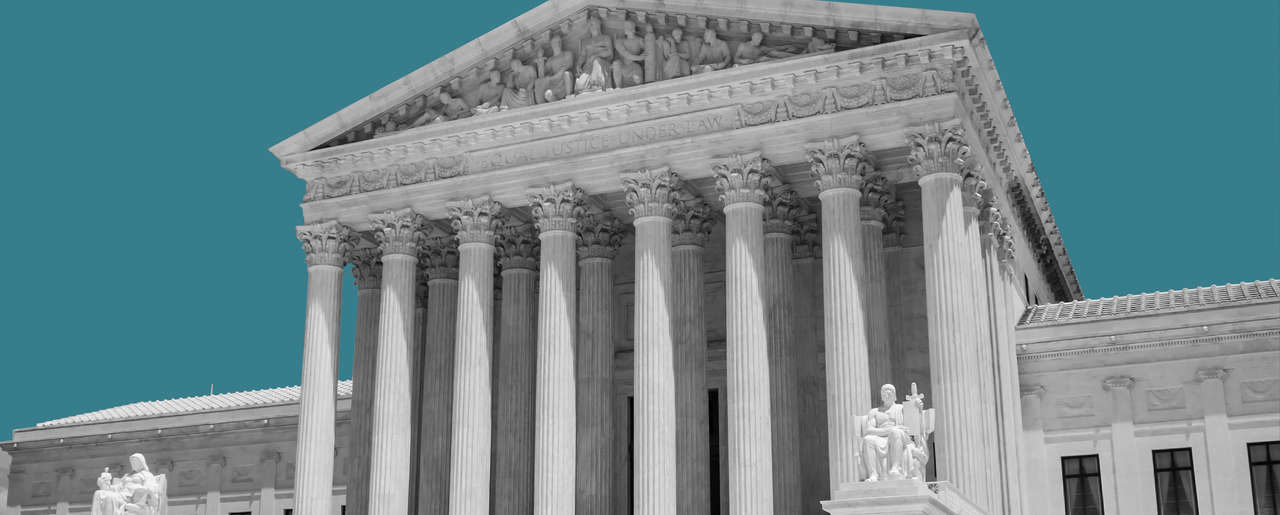Overview
The Supreme Court is the final arbiter of whether the constitution is being followed. States may be more protective of individual rights than required under the federal constitution, but they cannot be less protective. In particular, the Supreme Court is responsible for ensuring that state use of the death penalty adheres to our fundamental rights. Court rulings can involve the methods of execution used, the competency of defense counsel, the selection of juries, the behavior of the prosecution, and many other matters protected by the right to due process.
In the earlier history of the country, the Supreme Court left much of the practice of the death penalty and other punishments to the states’ discretion, rarely ruling on whether any practice should be considered cruel and unusual. In recent decades, the Court has regularly considered multiple capital cases each term. Some of these cases arise from appeals of state rulings involving the U.S. constitution, others are result of federal decisions on both state and federal death penalty matters.
At Issue
The key question for the Supreme Court is whether the death penalty itself continues to be constitutional in light of its rare use and its rejection by large segments of society. Recent revelations about the risks of executing innocent defendants, racial bias in its application, and the lengthy time inmates spend on death row, has led society to rethink its support of the death penalty. Some Justices have called for a comprehensive review of the practice. The make-up of the Court is likely to determine when such a case might be considered and how the Court will rule.
What DPIC Offers
DPIC has summaries of the important death penalty cases decided by the Supreme Court in the modern era. The opinions of individual Justices on the practice of the death penalty in the U.S. are highlighted. Cases that the Court has decided to hear but have not yet been argued are previewed on the website.
News & Developments
News
Jun 27, 2025
U.S. Supreme Court Rules in Favor of Texas Death Row Prisoner Seeking DNA Testing

On June 26, 2025, the United States Supreme Court issued a rare 6 – 3 ruling in favor of a Texas death row prisoner, Ruben Gutierrez, holding that he may proceed with his lawsuit challenging Texas’s post-conviction DNA statute on constitutional grounds. Mr. Gutierrez was convicted and sentenced to death in 1999 for the murder and robbery of an 85-year-old woman but has long maintained he did not know his codefendants would kill the victim. According to the decision,…
Read MoreNews
Jun 03, 2025
Scott Panetti, Prisoner in Landmark Competency Case, Dies on Texas Death Row of Natural Causes
Scott Panetti died on Texas’ death row at the end of May 2025 after 30 years in prison. He became well-known for the role his case played in clarifying the legal standard for determining when defendants are competent to face execution — precedent that continues to shape court decisions nationwide. Mr. Panetti’s severe mental illness manifested in his late teens, leading to more than a dozen psychiatric hospitalizations through the 1980s and early 1990s. His…
Read MoreNews
Apr 15, 2025
United States Supreme Court Denies Review for Death-Sentenced Missouri Man Whose Jury Foreman Was Removed for Bias
On March 31, the Supreme Court declined to hear the appeal of Lance Shockley of Missouri, the 36th death-sentenced person to be denied certiorari by the Court this year. At trial, Mr. Shockley’s jury foreman was removed before the sentencing phase based on evidence of serious bias — but Mr. Shockley’s attorney declined the opportunity to question the foreman or other jurors about the misconduct, and his conviction, which the foreman participated in, was allowed to…
Read MoreNews
Mar 28, 2025
“He Looks a Little Like the Defendant”: A Closer Look at the History of Racial Bias in Jury Selection
As closing arguments of his trial began in Johnston County, North Carolina, Hasson Bacote watched as Assistant District Attorney Gregory Butler urged the jury to sentence him to death. Mr. Bacote, a Black man, had been convicted of fatally shooting 18-year-old Anthony Surles during a robbery when Mr. Bacote was just 21 years old. Mr. Bacote admitted he had fired a single shot out of a trailer, but said he did not know that he hit anyone.“Hasson Bacote is a thug: cold-blooded…
Read MoreNews
Mar 27, 2025
U.S. Supreme Court Denies Review in Texas Faulty DNA Evidence Case, Despite Prosecutor Confession of Error
On March 24, 2025, the United States Supreme Court denied review of Areli Escobar’s (pictured) most recent appeal of his murder conviction, which argued for relief based on the fact that the Texas prosecutor had confessed error over the misleading use of inconclusive DNA evidence at trial. In his petition, Mr. Escobar’s legal team said Travis County prosecutors had relied heavily at trial on compromised evidence analyzed by the Austin Police Department’s crime…
Read More

